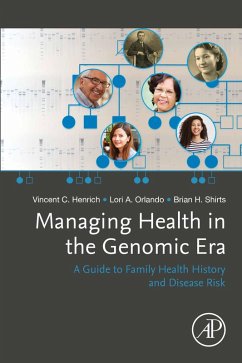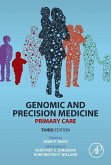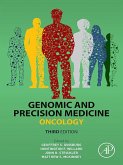Here, frontline healthcare providers will discover succinct commentary and key examples to assist with their local needs. Relevant principles of genetic biology and inheritance are explored and guidance on available support networks and online resources is also provided.
- Presents a practical, accessible resource for primary care providers, allied health professionals, pharmacologists, public health professionals, students and clinical researchers
- Addresses genetic and genomic approaches in managing patient health, conducting and analyzing family health histories, and assessing adult disease risk
- Features an expert author team with direct experience integrating genetics and genomics in primary care and family medicine settings
- Examines the attributes and limitations of family health history, genetic testing, and genomic testing in clinical practice
- Includes detailed explanations following practice-based examples
Dieser Download kann aus rechtlichen Gründen nur mit Rechnungsadresse in A, B, BG, CY, CZ, D, DK, EW, E, FIN, F, GR, HR, H, IRL, I, LT, L, LR, M, NL, PL, P, R, S, SLO, SK ausgeliefert werden.









